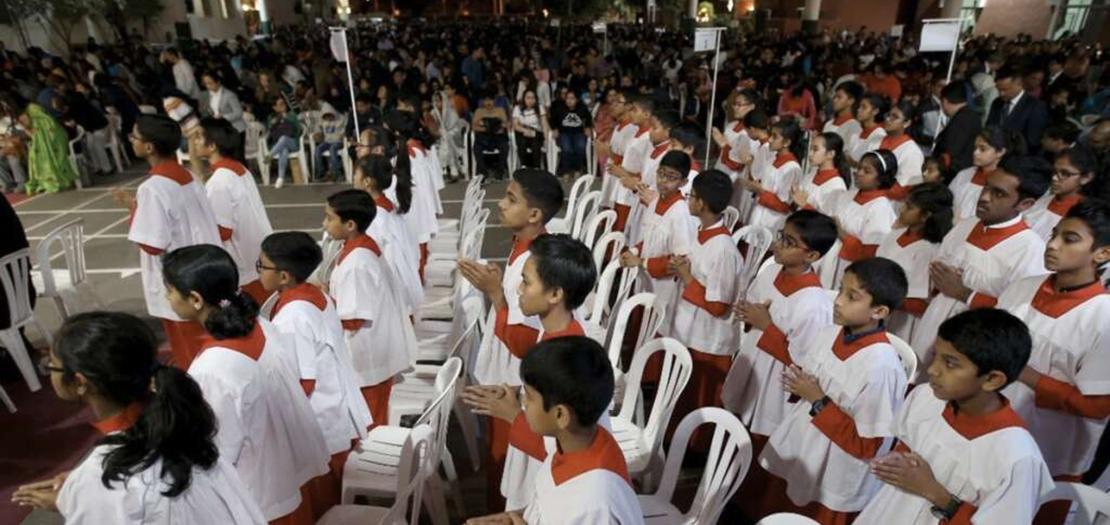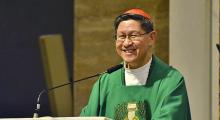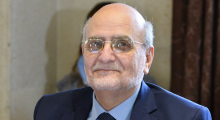Issued by the Catholic Center for Studies and Media - Jordan. Editor-in-chief Fr. Rif'at Bader - موقع أبونا abouna.org

On May 1, Pope Francis appointed Italian Bishop Paolo Martinelli, O.F.M Cap, as the new Apostolic Vicar of the Apostolic Vicariate of Southern Arabia, after accepting the resignation presented by his Capucin confrere, Bishop Paul Hinder.
The Vicariate covers Oman, the United Arab Emirates, and war-torn Yemen. Catholics in these majority Muslim countries are a small community of some one million people, composed almost exclusively of foreign immigrant workers and expatriates from different nations. Since 1916, the Arabic Peninsula has been entrusted to members of the Franciscan family.
Ahead of his canonical installation, Bishop Martinelli, presently Auxiliary Bishop in Milan, Italy, spoke to Vatican News' Antonella Palermo about the challeges of his new mission among peoples of different cultures and religions in a majority Muslim context.
'Fratelli tutti' a point of reference
In this regard, he said the ‘Document on Human Fraternity for World Peace and Living Together’ signed in Abu Dhabi on February 4 2019 by Pope Francis and the Grand Iman Sheikh Ahmed el-Tayeb of Al-Azhar, and the subsequent Encyclical Letter ‘Fratelli tutti’, will both be a great source of inspiration in his pastoral work in Southern Arabia.
He said that the two documents are particularly meaningful to him, a Capucin, as they are inspired by St. Francis of Assisi, who prophetically showed that fraternal dialogue and sharing between peoples of different cultures and religions are a “viable prospect”.
Putting relationships at the center
However, Bishop Martinelli acknowledges that, as the war in Ukraine and the many other conflicts going on in the world show, promoting fraternal relations is not by any means an easy task.
Indeed, he says, to make fraternity possible a conversion of the hearts from a self-centered perspective to a relationship perspective is needed.
“Fraternity means not being at the center of the world, but putting relationships at the center. For Christians, every fraternal relationship starts from the recognition that we are all creatures of God, willed by one Father. It is not a generic brotherhood, in which I recognize the other person only as a mirror, a photocopy of my own image, but acknowledging the good in each person. It is an ongoing effort to build a good shared life.”
Religion and politics
Asked about the controversial issue of the relationship between religion and political power, in light of the current international situation, Bishop Martinelli recalled Pope Francis’ words in ‘Fratelli tutti’ saying that religions have the duty of promoting a good life and condemning any attempt to exploit religion for political ends.
“Religion must be understood as a way of goodness and reconciliation, always keeping in mind that I cannot bend others to my ideas. This central feature of religion must be preserved.”
War in Yemen
Bishop Martinelli also spoke about the ongoing war in Yemen, which Pope Francis mentioned again in his interview with the Italian newspaper Corriere della Sera earlier this week. In this regard, the prelate highligted the need to work not only on the diplomatic level, but also at grassroot level by building a culture of encounter from below.
“We need to break the mould and self-nurturing interests, but there is also a need to encourage meaningful encounters at grassroot level; to make people understand how different cultures can confront each other despite tensions, precisely by focusing on the common good.”







